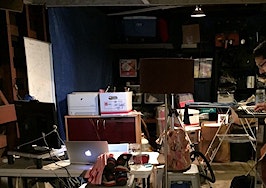The inventory crisis may be reaching a turning point and a new survey shows that for older millennials, that change can’t come fast enough.
Nearly one-fifth (17 percent) of adults aged between 28 and 37 say they lose sleep over their ability to pay for housing, more than any other age group, according to a report from Bankrate.com.
“Millennials have a lot to worry about,” said Bankrate.com analyst Amanda Dixon in a statement. “The economy overall is in good shape, but wages are stagnant, housing costs are rising, and the job market has become more competitive. It’s no wonder so many 20- and 30-somethings lie awake at night.”
Among U.S. adults overall, more than 1 in 10 — a number that encompasses about 29 million people — say they lose sleep over their ability to pay the mortgage or rent. Parents with children under age 18 are more likely to worry about this (16 percent) than those without young children (10 percent), the report said.
Those making less than $50,000 in income per year were more than three times as likely to stress about housing costs (21 percent) than those making more than that (6 percent).
The survey revealed older millennials to be the most stressed age group overall with 77 percent saying they lose sleep over relationships, money, work, health and/or politics. More than 4 in 10 older millennials (43 percent) say that money has caused them restless nights, a higher share than any other age group, the report said.
Nearly a quarter (24 percent) of older millennials say they lose sleep due to credit card debt, and 20 percent are stressed about saving for retirement, though younger baby boomers (ages 54-63) and Gen Xers (ages 38-53) are more likely to say they’re stressed about the latter (25 percent and 22 percent, respectively).
There doesn’t seem to be any relief for cranky, stressed-out, sleep-deprived older millennials in sight. Home prices hit a four-year high last month and are projected to skyrocket in 2019.
Methodology
This study was conducted for Bankrate.com by GfK Custom Research North America on its OmniWeb online omnibus. The sample consists of 1,000 completed interviews, weighted to ensure accurate and reliable representation of the total population, 18 years and older. Fieldwork was undertaken June 29-July 1, 2018. The margin of error for total respondents is +/- 3 percent.













